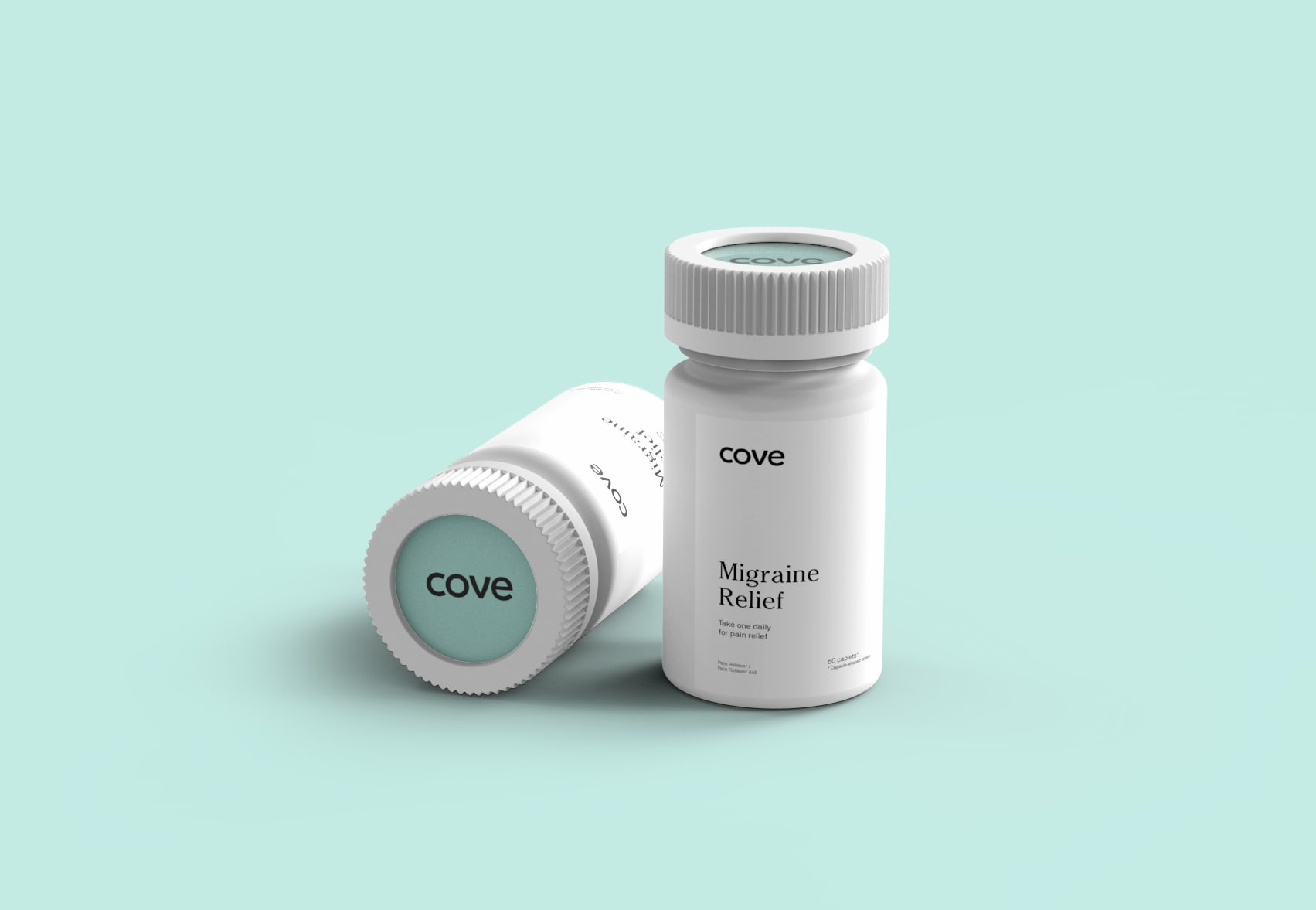What is rizatriptan?
Rizatriptan (generic Maxalt®) is a triptan medication that’ll help knock out the symptoms like headache pain that come with an acute migraine attack. It is available as a standard tablet or as an orally-dissolving tablet (ODT), a migraine medication that dissolves in your mouth.
What will it do for me?
When you feel a migraine headache starting to build, rizatriptan can help nip it in the bud (before you have to retreat into a dark room for two days). Rizatriptan may be able to relieve you of many of the common symptoms you experience during a migraine attack (which could include headache, nausea, and sensitivity to light and/or sound).
How does it help?
Did you know that when you experience a migraine attack, your blood vessels over-expand? Rizatriptan tablets act like traffic controllers for the blood vessels around your brain. When things get really bad, they help to:
- narrow the expanded blood vessels (also known as vasoconstriction for the scientist in you)
- decrease any inflammation in the nerves
- turn down the volume on those loud pain signals making your brain feel like it’s going to explode
Where can I buy rizatriptan (generic Maxalt®)?
Rizatriptan is a prescription medicine, so you’ll need to talk to your doctor first to see if it’s right for you. Ready to get started? You can complete a Cove doctor consultation now.
How should I take it?
Right away, of course (which means you should try to take it at the very first sign of an attack). You can take standard rizatriptan tablets with water, with or without food. Rizatriptan ODT can be taken without water or food, which is helpful for people who get nauseous during migraine attacks.
What should I be cautious of?
If any of the below looks familiar, definitely talk to your doctor before taking rizatriptan because, like any prescription medication, drug interactions and side effects can be unpleasant. Here are some risk factors to consider:
- You’re on other medications.
- You’ve had angina, heart attack, chest pain, or other heart conditions.
- You’ve had a stroke or TIA.
- You’ve had a stroke-like migraine (hemiplegic migraine).
- You’ve been told you’ve had a brainstem migraine (basilar migraine).
- You have poor circulation.
- You have uncontrolled high blood pressure.
- You have certain heart arrhythmias (irregular rhythms).
- You have severe liver disease.
- You’re taking other acute prescription migraine medication.
Can I take rizatriptan with other migraine medications?
Don’t take rizatriptan with any other migraine-specific medication (like sumatriptan). Other acute pain and preventive medications are ok. Taking propranolol too? That’s fine, but make sure you only take half of your usual dose of rizatriptan (5mg) as its effects are increased when combined with other medications.
What happens if can’t take it right away?
Take it as quickly as you can at the first signs of an attack.
Where should I keep my rizatriptan?
Keep it in a dry place at a cool room temperature.
Are there any side effects?
Generally speaking, most people handle rizatriptan quite fine. Some experience dizziness, warmth, tingling, and non-heart related chest discomfort.
What other triptans are available?
There are currently six other triptan drugs prescribed in the United States in addition to rizatriptan: eletriptan (generic Relpax®), naratriptan (generic Amerge®), sumatriptan (generic Imitrex®), zolmitritpan (generic Zomig®), almotriptan (generic Axert®), and frovatriptan (generic Frova®).
In addition to rizatriptan and rizatriptan ODT, Cove currently offers oral eletriptan, naratriptan, sumatriptan, and zolmitritpan.
The information provided in this article is not a substitute for professional medical advice, diagnosis, or treatment. You should not rely upon the content provided in this article for specific medical advice. If you have any questions or concerns, please talk to your doctor.
Eletriptan, naratriptan, and zolmitriptan are oral medications indicated for the acute treatment of migraine with or without aura in adults and is not used to prevent migraines. Tell your doctor if you are pregnant or plan on getting pregnant. You will need to talk about the benefits and risks of using this drug while you are pregnant. Tell your doctor if you are breast-feeding. Call your doctor right away if you have allergic reactions like skin rash, itching or hives, swelling of the face, lips, or tongue, chest pain or chest tightness, signs and symptoms of a dangerous change in heartbeat or heart rhythm like chest pain; dizziness; fast, irregular heartbeat; palpitations; feeling faint or lightheaded; falls; breathing problems. Call your doctor right away if you have signs and symptoms of a stroke like changes in vision; confusion; trouble speaking or understanding; severe headaches; sudden numbness or weakness of the face, arm or leg; trouble walking; dizziness; loss of balance or coordination. Call your doctor right away if you have signs and symptoms of serotonin syndrome like irritable; confusion; diarrhea; fast or irregular heartbeat; muscle twitching; stiff muscles; trouble walking; sweating; high fever; seizures; chills; vomiting. You can read more about eletriptan’s side effects, warnings, and precautions here. Full prescribing information for eletriptan is available here. You can read more about naratriptan’s side effects, warnings, and precautions here. Full prescribing information for naratriptan is available here. You can read more about zolmitriptan’s side effects, warnings, and precautions here. Full prescribing information for zolmitriptan is available here. You are encouraged to report negative side effects of prescription drugs to the FDA. Visit MedWatch: https://www.fda.gov/Safety/MedWatch/default.htm or call 1-800-FDA-1088.
Sumatriptan and rizatriptan are oral medications indicated for the acute treatment of migraine with or without aura in adults and not for the prophylactic therapy of migraine attacks or for the treatment of cluster headache. Tell your doctor if you are pregnant or plan on getting pregnant. You will need to talk about the benefits and risks of using either of these drugs while you are pregnant. Tell your doctor if you are breast-feeding. Call your doctor right away if you have chest, throat, neck, or jaw tightness, pain, pressure, or heaviness; break out in a cold sweat; shortness of breath; a fast heartbeat; a heartbeat that does not feel normal; or very bad dizziness or passing out. Very bad and sometimes deadly brain blood vessel problems like stroke have rarely happened with this drug. Call your doctor right away if you have weakness on 1 side of the body, trouble speaking or thinking, change in balance, drooping on 1 side of the face, or change in eyesight. You can read more about sumatriptan’s side effects, warnings, and precautions here. Full prescribing information for sumatriptan is available here. You can read more about Rizatriptan side effects, warnings, and precautions here. Full prescribing information for rizatriptan is available here.
Propranolol is used to treat high blood pressure and prevent migraine headaches. Do not stop taking these drugs all of a sudden. If you do, chest pain that is worse and in some cases heart attack may occur. The risk may be greater if you have certain types of heart disease. To avoid side effects, you will want to slowly stop this drug as ordered by your doctor. Call your doctor right away if you have new or worse chest pain or if other heart problems occur. You can read more about propranolol side effects, warnings, and precautions here.Full prescribing information for propranolol is available here. You are encouraged to report negative side effects of prescription drugs to the FDA. Visit MedWatch: https://www.fda.gov/Safety/MedWatch/default.htm or call 1-800-FDA-1088.


